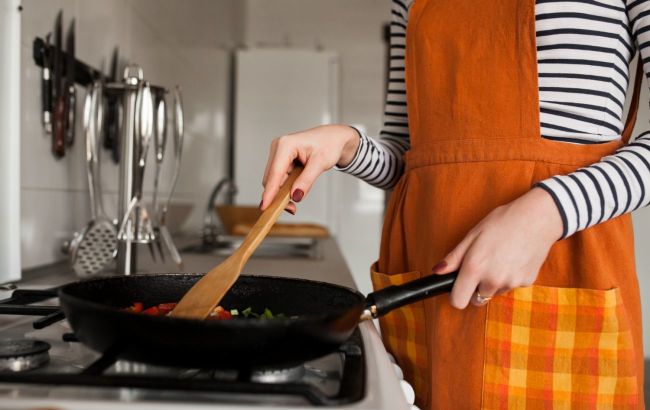Key foods to avoid cooking in cast iron skillets
 Illustrative photo (Photo: Freepik)
Illustrative photo (Photo: Freepik)
A cast-iron skillet absorbs food odors significantly. Additionally, it can serve you for a lifetime. There are certain foods that are better to avoid cooking using it, according to the Real Simple website.
Fish
It's a favorite dish for many people. Tuna steaks are ideal for frying and can withstand high temperatures. However, delicate types of fish, such as flounder, cod, and even salmon, are likely to stick to the skillet. After cooking, the skillet will need thorough cleaning; otherwise, the next dish might taste fishy.
Eggs
A cast-iron skillet is incredibly porous, so eggs are the worst thing to cook on it. They are likely to cook unevenly, and you'll spend the whole morning scraping egg remnants from the skillet's bottom.
Desserts
While a large skillet looks perfect for making a fruit pie or cheesecake, it's crucial to ensure that it's thoroughly cleaned from the previous dish. Only then can it be used for dessert preparation.
Acidic products
Cast-iron skillets and acidic products are absolutely incompatible. When making tomato sauce or cooking wine-braised meat, it's better to use stainless steel cookware. Experts warn that acidic products chemically react with cast iron, which can give your food an unpleasant taste and can be harmful to health.
Strong-smelling products
It's important to remember that if nothing sticks to the skillet during cooking, it doesn't mean it won't absorb food odors. Dishes with strong smells are better prepared in different cookware.
How to buy a reliable cast-iron skillet
Despite being high-maintenance, a cast-iron skillet is still a reliable item. It's worth making the right purchase once. Here are some recommendations when buying:
- Choose a skillet with a bottom thickness of no less than 4 mm and walls of 3 mm.
- Thinner metal distributes heat unevenly.
- Pay attention to the size. If you cook in small portions, there's no need to buy a large skillet.
- If you usually only fry products, you can buy a skillet without a lid. For stewing, you'll need a model with a lid.
- Check compatibility with your stove. Most cast-iron skillets without enamel coating are suitable for induction cooktops.

